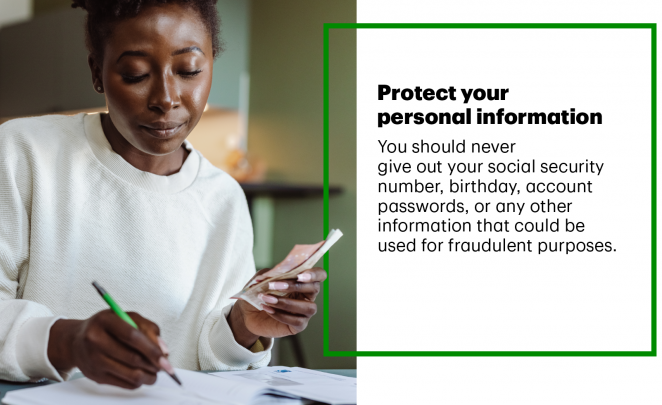With the holiday season upon us, many Canadians are looking to make charitable donations to help those in need.
According to a study from Canada Helps, an online portal through which Canadians can donate online to almost any registered charity in Canada, roughly 30% of all donations are made in the month of December. At the same time, the average gift amount grows by roughly 80% in December.
If you're one of those individuals who is thinking of making a donation this holiday season, you may be wondering how to make the most of your charitable giving this year, and how you can help ensure you’re doing so safely.
The following tips can help you with your charitable giving.
Make sure you understand the charity's work
Does the charity you are giving to have a mission that lines up with your values and beliefs? Not all charities operate in the same way, and some may engage in activities you may not feel comfortable with. Before you give to any charity, it's important to take the time to learn about the work it does, how it operates, and how your money will be used. Some charities provide services directly, while others help fund other organizations.
Make sure the charity is legitimate
Next, you're going to want to ensure that whatever charity you decide to donate money to is legitimate. The Canada Revenue Agency keeps a list of charities that are properly registered, or if their registration has been revoked, annulled, or suspended. The CRA can also provide you with a copy of a registered charity's governing documents – including its statement of purpose – as well as the names of the charity's directors and trustees, and any public information from a charity's annual information return and financial statements.
Be sure to ask questions
A charity should be able to answer any questions you may have about how your donation will be used and how they help those in need. If an organization refuses to give you information, gives vague responses, or tries to dodge your questions, consider those to be red flags and save your money for another charity.
Find out how much of your donation supports the cause
All charities have operating expenses, but some may spend a higher percentage of donations on administrative functions and fundraising than on the causes they claim to support. When asked, a legitimate charity should provide you with information on how they spend their money. You can also get a charity's contact information, general activities and the public information from a charity’s annual information return and financial statements.

Protect your personal information
As with any financial transaction, it's important to carefully guard your personal information when you give to a registered charity. You should never give out your social security number, birthday, account passwords, or any other information that could be used for fraudulent purposes. Legitimate charities don't need this information. If someone claims to represent a charity and asks for your personal information, consider it to be a scam.
Find out if your donation is tax-deductible
Not all organizations that accept donations are charities. Because of this, you may want to make sure that you will receive a tax receipt for your donation before giving. A charity should be able to provide you with a tax receipt for your gift subject to any minimum donation amount they may require.
Trust your instincts
Giving is something you should do because you genuinely want to, and not because someone is pressuring you. If you are asked for a donation by a charity and you aren't sure you want to give, tell the person you are talking to that you need some time to think about it. Find out how you can contribute after you have properly vetted the organization and have had time to make a decision.
Take your time
If you have vetted a charity and everything checks out, but you are not yet ready or can afford to give, that's okay. There is nothing that says you must give. You should only give when you believe in both the organization and its mission and you can afford to do so.
We hope you found this article helpful. Our content is not intended to provide legal, investment or financial advice or to indicate that a particular TD product or service is available or right for you. For specific advice about your unique circumstances, consider talking with a qualified professional.
